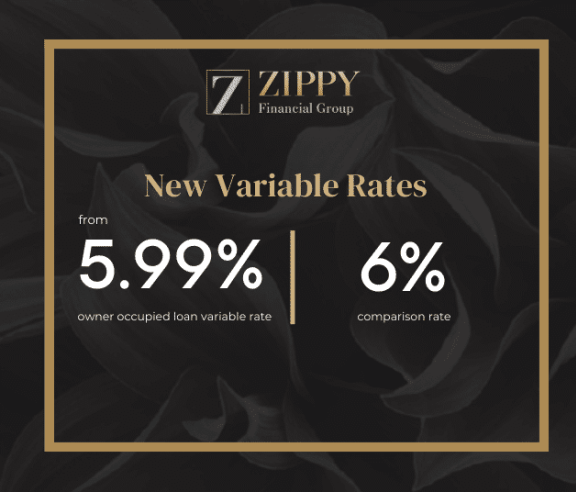Strategies for Achieving a Debt-Free Retirement Plan in Modern Times

In today's fast-paced world, where economic landscapes shift rapidly, having a solid retirement plan is more crucial than ever. While most people dream of a retirement filled with leisure, travel, and family time, the reality can be quite different, especially if saddled with debt. This article delves into the importance of a debt-free retirement and offers strategies to achieve it.
The Modern Challenges of Retirement Planning
The vision of retirement has evolved over the years. Gone are the days when retiring meant living off one's savings in a paid-off home. Today, an increasing number of retirees find themselves grappling with outstanding debts. Factors such as rising living costs, unexpected life events, and the volatile property market have made debt-free retirement seem like a distant dream for many.
The Benefits of a Debt-Free Retirement
Retiring without the burden of debt offers numerous advantages. Financially, it means fewer expenses and a more substantial nest egg. Psychologically, it translates to peace of mind, allowing retirees to truly enjoy their golden years. Without monthly loan payments looming over their heads, retirees can freely pursue passions, hobbies, and even travel.
Proactive Steps to Ensure a Debt-Free Retirement
Achieving a debt-free retirement is a crucial financial goal that offers peace of mind and financial security in your golden years. In this discussion, we will explore proactive steps and strategies to help individuals work toward a debt-free retirement, ensuring a stable and worry-free financial future.
Supercharge Your Savings:
Start by setting aside a portion of your income regularly. It might seem challenging initially, but even small, consistent savings can accumulate over time, providing a significant buffer in retirement.
Smart Investments:
Diversify your investment portfolio. Consider a mix of stocks, bonds, and real estate. The goal is to grow your retirement funds, ensuring they outpace inflation.
Downsizing:
As retirement approaches, consider the benefits of living in a smaller, more manageable home. Selling a larger property can free up funds, which can be invested or saved.
Avoiding New Debts:
As tempting as it might be to take on or rack up credit card debt, exercise caution. Focus on clearing existing debts and avoid taking on new ones.
Refinancing Options:
If you have existing loans, explore refinancing options. Securing a loan with a lower interest rate can save money in the long run.
The Role of Superannuation in Your Retirement Plan
Superannuation is a tax-effective way to save for retirement. Consider salary sacrificing or making voluntary contributions to boost your super balance. Remember, the more you contribute now, the more you'll have when you retire.
Seeking Expert Advice
Every individual's financial situation is unique. Tailoring your retirement strategy based on your specific needs and goals is essential. Consider consulting with financial advisors or mortgage brokers who can offer personalized advice and solutions.
Achieving a debt-free retirement in modern times requires foresight, planning, and discipline. By taking proactive steps today, you can ensure a comfortable and financially secure retirement. Remember, it's never too early or too late to start planning.
Frequently Asked Questions
What are the benefits of a debt-free retirement?
A debt-free retirement offers peace of mind, financial freedom, and the ability to enjoy your golden years without the burden of monthly payments or interest accumulating on outstanding debts.
How can I start planning for a debt-free retirement?
Begin by assessing your current financial situation, setting clear retirement goals, creating a budget, and considering professional financial advice to map out a strategy tailored to your needs.
Is it advisable to pay off my mortgage before retiring?
Yes, paying off your mortgage before retirement can significantly reduce your monthly expenses, allowing for a more comfortable and stress-free retirement.
What role does budgeting play in achieving a debt-free retirement?
Budgeting helps you track your income and expenses, allowing you to allocate funds effectively towards debt repayment and savings, essential for achieving a debt-free retirement.
What should I prioritize: paying off debts or saving for retirement?
While both are essential, it's generally advisable to pay off high-interest debts first to avoid accumulating interest. Once high-interest debts are managed, focus on saving for retirement.
How can professional financial advice benefit my retirement planning?
Financial experts can offer tailored strategies, tax-saving tips, and investment advice, ensuring you're on the right track to achieve your retirement goals.
Phone: 1300 855 022
Zippy Financial is an award-winning mortgage brokerage specialising in home loans, property investment, commercial lending, and vehicle & asset finance. Whether you are looking to buy your first home, refinance or build your property investment portfolio, the team at Zippy Financial can help find and secure the right loan for you and your business.
About the Author:
Louisa Sanghera is an award-winning mortgage broker and Director at Zippy Financial. Louisa founded Zippy Financial with the goal of helping clients grow their wealth through smart property and business financing. Louisa utilises her expert financial knowledge, vision for exceptional customer service and passion for property to help her clients achieve their lifestyle and financial goals. Louisa is an experienced speaker, financial commentator, mortgage broker industry representative and small business advocate.
Connect with Louisa on Linkedin.
Louisa Sanghera is a Credit Representative (437236) of Mortgage Specialists Pty Ltd (Australian Credit Licence No. 387025).
Disclaimer: This article contains information that is general in nature. It does not take into account the objectives, financial situation or needs of any particular person. You need to consider your financial situation and needs before making any decisions based on this information. This article is not to be used in place of professional advice, whether business, health or financial.













